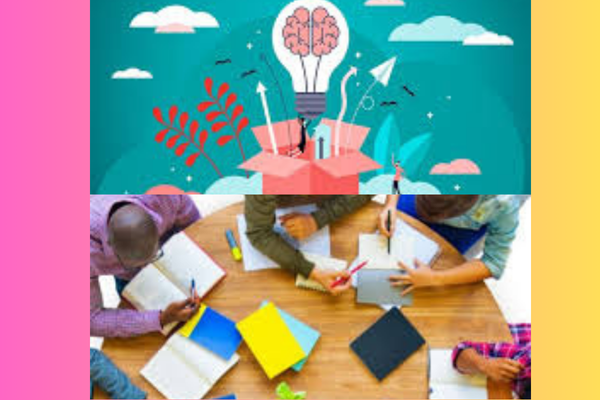Improving learning speed requires adopting effective techniques, maintaining consistency, and staying motivated. Let’s delve deeper into each step to help you learn faster and retain knowledge more effectively.
Table of Contents
Toggle1. Set Clear Goals
- Why It’s Important: Having a clear purpose focuses your efforts and gives you direction, saving time and energy.
- How to Do It: Write down specific, measurable, and time-bound goals. For instance, instead of saying, “I want to learn programming,” set a goal like “I will complete a beginner-level Python course in 4 weeks.”
- Tip: Use SMART goals (Specific, Measurable, Achievable, Relevant, Time-bound).
2. Stay Organized
- Why It’s Important: Organization prevents overwhelm and ensures efficient use of time.
- How to Do It:
- Use tools like Google Calendar or Trello to plan your study schedule.
- Organize study materials into folders or sections to make them easy to access.
- Tip: Dedicate specific times for learning and stick to the routine.
3. Leverage Active Learning
- Why It’s Important: Engaging actively with material improves understanding and retention.
- How to Do It:
- Summarize what you’ve learned in your own words.
- Teach someone else; this helps identify gaps in your knowledge.
- Tip: Ask questions about the material as if you’re trying to solve a puzzle.
4. Use the Pomodoro Technique
- Why It’s Important: Focused intervals prevent burnout and maintain productivity.
- How to Do It:
- Set a timer for 25 minutes and work on one task.
- Take a 5-minute break, then repeat. After four cycles, take a longer break (15–30 minutes).
- Tip: Use apps like Focus Keeper or Tomato Timer to help implement this method.
5. Utilize Multiple Learning Modalities
- Why It’s Important: Combining different methods engages more senses, improving memory and understanding.
- How to Do It:
- Read books, watch videos, and participate in hands-on activities.
- Use visual aids like flowcharts, infographics, or diagrams to reinforce complex topics.
- Tip: Mix and match methods based on your preferred learning style (visual, auditory, or kinesthetic).
6. Practice Spaced Repetition
- Why It’s Important: Revisiting material at intervals strengthens memory and prevents forgetting.
- How to Do It:
- Review notes after 1 day, 1 week, and 1 month.
- Use flashcards or apps like Anki or Quizlet to schedule reviews.
- Tip: Focus on reviewing material just as you’re about to forget it.

7. Stay Curious and Ask Questions
- Why It’s Important: Curiosity drives deeper engagement and exploration of topics.
- How to Do It:
- Ask yourself questions like “Why does this work this way?” or “What would happen if…?”
- Explore related topics to broaden your understanding.
- Tip: Keep a journal to jot down questions and seek answers later.
8. Eliminate Multitasking
- Why It’s Important: Switching between tasks divides attention and reduces efficiency.
- How to Do It:
- Dedicate uninterrupted time to one task or subject.
- Turn off notifications and set your phone to “Do Not Disturb.”
- Tip: Use apps like Forest or Freedom to block distractions.
9. Get Adequate Sleep
- Why It’s Important: Sleep consolidates memories and restores cognitive function.
- How to Do It:
- Maintain a consistent sleep schedule.
- Aim for 7–9 hours of quality sleep each night.
- Tip: Avoid screens and caffeine before bedtime to improve sleep quality.
10. Exercise Regularly
- Why It’s Important: Physical activity improves brain function by increasing blood flow and reducing stress.
- How to Do It:
- Include aerobic exercises like walking, running, or cycling in your routine.
- Practice yoga or stretching to improve focus and flexibility.
- Tip: Even a 10-minute walk can boost energy and concentration.
11. Use Mnemonics and Memory Techniques
- Why It’s Important: Mnemonics simplify complex information, making it easier to recall.
- How to Do It:
- Create acronyms, like PEMDAS for math operations (Parentheses, Exponents, Multiplication, Division, Addition, Subtraction).
- Use vivid mental images to associate with concepts.
- Tip: Link new information to something you already know.
12. Take Care of Your Diet
- Why It’s Important: Proper nutrition fuels the brain, enhancing focus and memory.
- How to Do It:
- Include brain-boosting foods like nuts, berries, fish, and leafy greens.
- Stay hydrated to maintain optimal brain performance.
- Tip: Avoid heavy meals before studying to prevent sluggishness.
13. Learn in Short Bursts
- Why It’s Important: Short, focused sessions maximize learning potential without overwhelming the brain.
- How to Do It:
- Study for 25–45 minutes, then take a 5–10 minute break.
- Review material immediately after learning to reinforce it.
- Tip: Plan for multiple short sessions instead of one long marathon session.
14. Stay Positive and Manage Stress
- Why It’s Important: A positive attitude enhances motivation, while stress hinders focus.
- How to Do It:
- Practice mindfulness or deep breathing to calm your mind.
- Celebrate small victories to stay motivated.
- Tip: Remind yourself that learning is a journey, not a race.
15. Use Technology Wisely
- Why It’s Important: Technology can provide access to vast resources and streamline learning.
- How to Do It:
- Use apps, online courses, and digital tools for learning new skills.
- Avoid spending excessive time on unproductive apps or websites.
- Tip: Set specific goals for technology use, like completing one online course.
16. Evaluate and Adjust
- Why It’s Important: Regular self-assessment helps identify strengths and areas for improvement.
- How to Do It:
- Track your progress using journals or apps.
- Experiment with new learning strategies if your current methods aren’t effective.
- Tip: Ask for feedback from mentors or peers to refine your approach.
conclusion
- By incorporating these steps into your daily routine, you can significantly enhance your learning speed while retaining more information. Consistency and a proactive mindset are the keys to becoming a faster and more effective learner.

